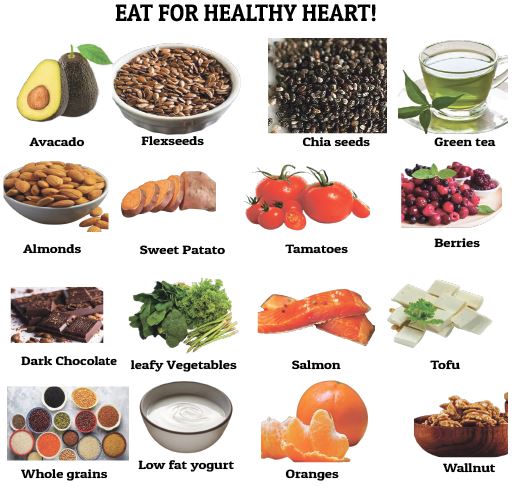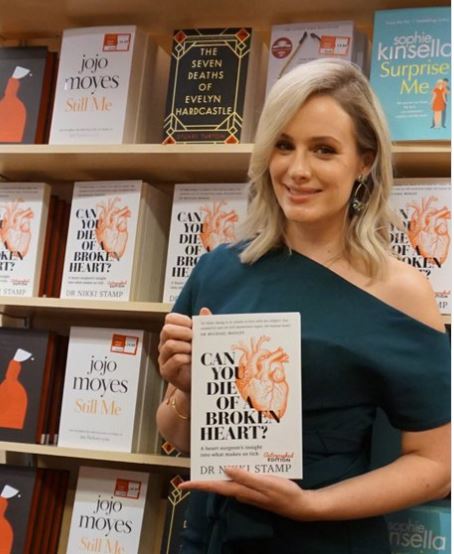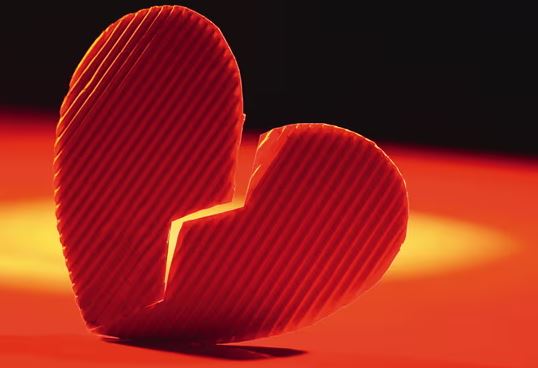By Tara Narayan
IN the space of two weeks I’ve got some bad news to do with the human heart. First came news that an old family friend who lived her life with a sense of humor, nearing her 100th birthday and after several scares…finally passed on in Delhi. I was filled with nostalgia of the old, younger years when life was still stress free, carefree. “Sharadaji” as we children called her out in my old hometown of Penang in Malaysia in the 1960s, was akin to a second mother to me.
Sharadaji lived for many more years than my mother. I always felt good that she was still around in Delhi and one of these days I will make it to meet her one more time. But it was not to be. She passed away on February 15, 2024 and all I can say rest in peace. Then came the shocker when her eldest 61-year-old son Rajesh, a dear friend of mine, fell prey to a heart attack on March 5. I recalled that his father too, Sharmaji (my dad’s good friend out in Penang) too had been prey to heart attack and literally came home from a walk and collapsed. Gone, prematurely. The younger son Rakesh too succumbed to a heart attack out in Penang barely in his 40s.
Since I have a lot of affection for both the boys who’ve I’ve seen grown up from childhood, I’ve been feeling very spooked, and for a week now I’ve got the human heart on my mind, am still feeling numb. Rajesh sometimes in Delhi, sometimes in Penang called me occasionally and I enjoyed my conversations with him. So the news of his demise came like a bolt from the blue, leaves behind a grieving wife and two children, extended family of three sisters and more.

SO this week here I’m asking do men succumb to heart failure more than women and how much is this a post-Covid vaccines aggravation of genes? Also, how much stress is too much stress. Lately, I’ve accepted the fact that stress is something which family members and sometimes friends too constantly inflict on one another, they play a role in keeping one’s heart alive and kicking. Most of us do live with “heartbreak” and come to terms with it somewhat or not at all; this has a bearing on our desire to live or die before we run out of time naturally or happily in longevity, or so to speak.
This week the question of stress and heart failure is bothering me a great deal. Along with the thought that if the government of the day cannot ease stress from the life of its people it is not fit to be a government! Say I too am a heart patient living on borrowed time and the question arises about who and/or what is responsible for the human heart in trouble?
I see it all around me. How a sensitive heart reacts to the emotional blows of life? Does it mean then we harden ourselves to have dead as dodo hearts? Many in the medical fraternity now acknowledge that stress and trauma play a role in weakening the emotional heart although in medicine parlance it is the best four-chambered pump in the world!
FOR me the question also arises: No matter how heart-healthy my diet, even if I manage to follow the famous Dr Dean Ornish diet for heart patients, how vulnerable am I to the people in my life, some of whom have been responsible for quite a bit emotional damage, although they’re no longer in my life now? How vulnerable is my heart regardless of whether I observe any heart-friendly diet or not, sometimes I do and oftentimes I don’t.
In any case I’m convinced now that many with heart problems are also emotional wrecks because they’re victims of circumstance or are constantly at the mercy of those we often refer to as “heartless.” Most of us live in denial that it is oftentimes family members and the trauma they inflict on one another which impacts one of them or some of them – family scenarios in India can be deadly in the absence of any strong loving family feelings. which can go a long way in easing life’s so called human conditions of who’s a giver and who’s a taker ad infinitum!
Usually, I’ve seen how it’s one member of the family who makes all the sacrifices for immediate and extended family welfare and only at life end they realize it’s been in vain – the biggest beneficiaries turn around and make allegations so bizarre that it completely breaks the one family member who made a big difference in their education, be it materially or immaterially in worldly-wise ways.
I have seen these conflicts in so many families now and am not at all surprised that there’re heart problems in these so called homes or hollow homes, where parivar plays out some terrible scenarios – very often the real pain and loss borne by senior folk at the autumn and winter of their life.

STILL, if you can come to terms with the emotional and intellectual dilemmas of life, I do believe that the organic heart benefits, if you feed it right (right feelings, right thoughts, right actions). Feed it with happiness of course if you can but then again there was something I was reading about how some foods do contribute to the strength, resilience and longevity of the heart (just a pump which plays a big role organically as well as metaphorically, nowadays many researchers have made the linkages between mind and body, heart and soul.)
I usually tell myself I have no control over many things but surely I have control over what I put in my mouth! So many doctors and authors have written about what makes a difference to the heart no matter what afflicts it. Today, there’re so many formulae of medicines and therapies redressing the very real ailments of the heart and the cardiac system – organic if not emotional linkages!
So many books have been written on how you can make up to your crock heart and as hearts go the heart of a woman is different from the heart of a man, their heart attacks write a different graph story. Over the years I’ve picked up many heart books for the sake of understanding my own heart inside out!
To name a few of the books with me, I’ve got “Heart Health, The Complete Program for New Strength and Vigor” by Alice Christensen; “Heart Disease and High Blood Pressure—How You Can Benefit from Diet, Vitamins, Minerals, Herbs, Exercise and Other Natural Methods” by Michael T Murray (ND); “Can You Die of a Broken Heart?” by Dr Nikki Stamp; “Heart & Health like Never Before, a New View for All” by Dr Sujata Vaidya; “Understanding and Dealing With Heart Disease, What You Need to Know” by Dr Keith Souter; “Heart Attack” by Dr GD Thapar (MD), “How to Protect Your Heart, Alternatives to Bypass Surgery and Angioplasty” by Howerd H Wayne (MD, FACC); “Yoga and Cardiovascular Management” by Swami Satyananda Saraswati; and a few more books. I had a copy of Dr Dean Ornish’s most famous book on what goes into the making of a strong heart but it’s lost.
IN our imperfect world with imperfect lifestyles some things we have no control over or so we think. I tell myself, surely the very least I can do is take charge of my own health and heart? Good heart hospitals like the Asian Heart Hospital in Mumbai where I had my bypass done some 15 years ago, should have programs for their post-heart surgery patients. The best hospitals in the advanced countries of the west do.
For instance, I hear at the famous Cleaveland Clinic in the US of A, they ran a program for heart patients and it was run by a surgeon, Caldwell Esselstyn Jr, MD. His aim was to get cholesterol levels so low that heart disease would stop in its tracks. Yes, he prescribed a vegetarian diet without dairy products or added oils. He showed patients how to cook and hosted group dinners featuring the kind of home-cooked foods they should eat to be heart healthy. Medications were prescribed only if a patient’s cholesterol level did not fall below 150 mg/dl with diet alone. The program worked. Dr Esselstyn’s patients became “practically bulletproof” as I read in one of my heart books. Although they were in bad shape when they arrived, all who adhered to the program said goodbye to recurring heart problems.
So, this is to say to all heart patients that there are foods you can add to your eating habits to lower cholesterol, protect cholesterol damage…add oats, beans, barley, they contain soluble fibre, it reduces cholesterol levels. I would say add our age old Indian millets! Eat a serving of millets and beans daily.
Soy products as we have seen out in the oriental world also have a special cholesterol lowering effect. Make soy bean milk at home, it’s easy or go live out in the oriental countries where soy products are popular street vendors fare and may be found in all the wet markets! Add a handful of nuts like walnuts and almonds in your eating habits, although high in fats they reduce cholesterol. Eat fruit and vegetables daily, they are zero cholesterol and their beta carotene, vitamin C and vitamin E do reduce the damaging effects of cholesterol in your blood.
At the University of Toronto, Dr David Jenkins took the vegetarian diet approach to ultimate conclusion. He reasoned that if a vegan diet (that is, one with no meat, dairy products, or eggs) lowers cholesterol levels; if soluble fiber, such as that in oat bran, lowers cholesterol; if certain nuts lower cholesterol; if soy products lower cholesterol; and if plant sterols lower cholesterol, then what would happen if he prescribed them all at the same time?
Jenkins came up with the Portfolio Diet which proved that a combo of all the afore-mentioned there was a drop of 29.6% in LDL cholesterol in just four weeks; similar to the effect of cholesterol-lowering drugs. So think about all this and take care of your heart, my friends, it is never too late. It’s advice I’m giving myself too these days!
Also forget all the toxic folk who make you unhappy because of their selfish, greedy, sadistic and masochistic all rolled in one — remember, we need good friends too, go find them. Oftentimes friends do more good than family members for whom you may have sacrificed many years for, and then when you need them the most in later years, they’ve all gone with the wind actually or metaphorically. They are not there for you for one reason or another.
Let go of stress once and for all and find happiness from within you…which shouldn’t be difficult to find if you are more or less guilt-free, have done the right things and broken no hearts wittingly or unwittingly. Life’s a conundrum we have to come to terms with.
And that’s some food for thought only this week!
Excerpted from “Can You Die Of A Broken Heart” by Dr Nikki Stamp…

A feminine issue?
WOMEN are much more likely to be affected by broken heart syndrome. Up to 90 per cent of patients with this disease are female; the remaining 10 per cent of male patients tend to be “shocked” by a physical, rather than emotion, trauma, such as being in a fight. In some cases the “shock” has been associated with amphetamine use, which, just like emotional stress or physical trauma, floods the body’s organs with hormones that are supposed to help us face an adversary or retreat (a fight-or-flight response). To muddy the waters, the symptoms people present with are very similar to a typical heart attack.
In February 2011 the New Zealand city of Christchurch experienced a severe earthquake. Christchurch is the country’s second largest city with a population of around 340,000. The 6.3 magnitude quake struk just after lunchtime. In addition to the loss of 185 lives in the earthquake and huge damage to the city, the number of people who presented at hospital with heart issues rose sharply. In the four days that followed, 21 people were diagnosed with takotsubo or stress-induced cardiomyopathy.
To put that into perspective, we normally see a few of these cases in an entire year.
As expected from what we already know of this disease, the 21 were all women. Most of them were otherwise well: they weren’t smokers or diabetics, nor did they have high blood pressure, which most of us know as typical risk factors for heart disease. A year after the quake all the women were alive and well. Some people succumb to their condition while others, receiving care to support the heart, recover well.
Fight or flight
THE bodies of those with broken heart syndrome are pumping out large amounts of hormones, such as adrenaline, noradrenaline and dopamine. Adrenaline is a hormone produced by the adrenal glands and by some nerve cells in the body. It’s what causes your heart to beat fast and your pupils to dilate as if you’re ready for a fight, which is exactly what adrenaline exists for – the fight-or-flight response that harks back to our days of running from sabre-toothed tigers. It makes our hearts pump faster, pushes up our blood pressure and make us sweat. Any scary or emotionally overwhelming experience can result in the body pumping out adrenaline.
Medical research is still trying to work out the intricacies of tabotsubo, but we do know the likely reason for the reaction comes down to hormones. The brain is shocked emotionally and a particular primitive part of the brain called the hypothalamus kicks things off. It starts telling the pituitary and adrenal glands and the nerves of the autonomic nervous system to pump out a lot of adrenaline. The adrenaline causes the blood vessels of the heart to squeeze down, almost as if they were afraid. This is particularly noticeable in the smaller blood vessels of the heart which squeeze down, effectively shutting down blood supply to the heart muscle cells. As the blood vessels all squeeze down, blood pressure skyrockets and the heart has to pump extra hard against the added blood pressure, which make the heart sick.
If we take a biopsy of heart muscle tissue from a heart with takotsubo, we can use a microscope to see what happens to the cells. The huge rush of adrenaline and other stress hormones damages the specialised proteins inside the cells; these proteins act as machinery for the cells to contact and cause the heart to pup. Some studies have shown that the various parts of the muscle cells including the mitochondria (the parts of a cell that deliver power to that cell) are damaged. Takotsubo heart cells experience widespread damage, probably from a kind of internal overdose of adrenaline.
This is where the heart is pretty cool, but also pretty vulnerable. Heart muscle cells are amazing. To squeeze and pump, heart muscle cells need blood, which has glucose and oxygen for energy and electrolytes like calcium, potassium and sodium, to move in and out of the cell. The blood also takes away waste products such as carbon dioxide. Once you give the heart muscle cells the energy they need and remove the waste products they don’t, they contract and shorten. When you have a whole heart worth of muscle cells getting blood, you have a heart that pumps with every beat. However, take away this blood delivery and removal system, and the heart muscle cells go out to lunch. Take it away for long enough and those cells can die. With enough cardiac muscle damage you will have a heart that isn’t interested in pumping.
The weaker sex?
AS much as society may like to pin takotsubo on women because they’re perceived as more emotional, it’s probably not quite that straightforward. In fact, many other cellular processes, body signals and hormones are responsible here, and medical science is still trying to work them out. Factors such as the way the body handles fatty acids or glucose are at play. Fatty acids and glucose provide energy for cells to perform their basic processes, such as moving, making protein or even growing and dividing. In sick cells, such as in takotsubo, there could be a problem with the muscles cells’ ability to effectively use this energy source.
Oestrogen protects the heart, so when oestrogen starts to decline in menopause, the heart may be more vulnerable, particularly the blood vessels of the heart, which can be extra reactive. This may account for the fact that women are afflicted by takotsubo more than men. But we don’t yet full understand why some people get this, or what level of stress will start the process.
A heart affected by takotsubo cardiomyopathy can get very sick. And that in turn can make its owner very sick. There’s no actual cure. We use treatments that are broadly termed “supportive care”; medicines that take the strain off the sick heart; medicines that oppose the ill effects of these adrenaline-type hormones; and medicines that relax blood vessels to make the heart’s job a little easier. Sicker patients might need medicines to help the heart pump or raise the blood pressure so that all the other vital organs receive blood. Most people with takotsubo make a perfectly fine recovery, as the heart recovers from the stress hormone storm. Some do not, and some even die of their broken heart.
